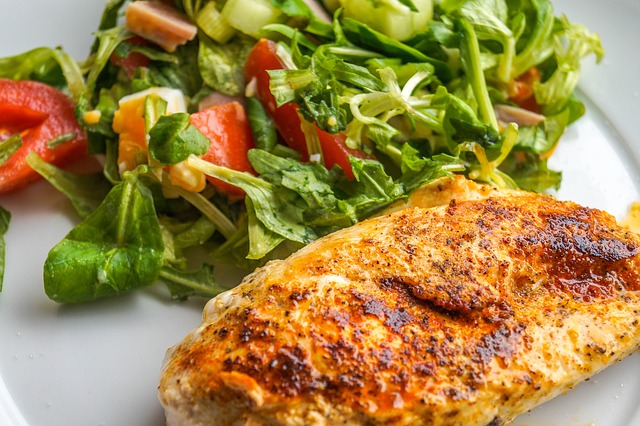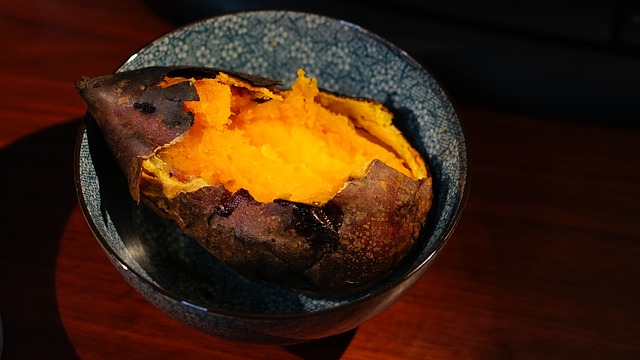 |
| Keto Diet vs Atkins: which low-carb diet is best for you? |
I'm going to be honest here.
If you do a Google Trends search that compares the Keto Diet to Atkins, the Keto Diet is kicking Atkins' butt.
In fact, the Atkins Diet itself has been losing traction over the past year and is sinking in interest, even without the competition between Atkins and Keto followers.
Part of the reason is that Atkins Nutritionals, Inc. (the ANA) has been trying to improve the Old-School Atkins way of eating over the past few years by moving toward a more socially accepted low-glycemic diet, limiting the protein allowed on Atkins 20, and bringing in a higher-carb Atkins 40 and Atkins 100 to attract younger adults.
However, none of the newer plans work as well as the original, individualized low-carb diet that Dr. Atkins created does.
The flesh-and-blood of the Atkins Diet are the baby boomers, but the ANA is now targeting the entire family and health-conscious families without low-carb dieters with their latest Atkins 100 plan.
The popularity of the Keto Diet has risen dramatically over the past year. Keto was the number one weight-loss diet searched for on Google Search in 2018.
More troublesome than the high-fat movement being stronger than the moderate-fat movement is that the number one result in Google search results a few months ago for "Atkins vs Keto" was telling readers that the Atkins Diet fell out of popularity because:
"people were getting sick, gaining weight over the long term, or increasing their blood lipid profile."
Today's number one result stated that low-carb leads to dizziness and nutritional deficiencies, as well as exhaustion.
Other claims include "heavy encouragement" to eat whatever you want whenever you want, as long as it is low in carbs, which has never been a part of the Atkins Diet -- ever.
Supposedly, this low-carb free-for-all leads to massive overeating, and causes severe health problems, but in across the decades that I have been involved in the low-carb movement, I have never seen that happen to anyone eating Atkins.
The drop in popularity is more likely a result of the confusion and disinformation that the new Keto-pushers are creating.
Yes, there are still thousands of folks searching for information on the Atkins Diet. If you happen to be one of them, you can reach the ANA site by clicking on the link near the top of this post.
Despite the opposition, the Atkins Diet is not dead.
But in my personal experience, a large majority of people searching for Atkins are only interested in Atkins because they believe that Atkins and Keto are the same thing.
They're not.
The differences between these two low-carb weight-loss plans are not what most people claim they are. To prevent you from getting sucked into the marketing crap, this post will reveal the truth about Atkins vs Keto.
Atkins vs Keto: What the New Keto Advocates are Saying
The new Keto vs Atkins advocates emphasize the fact that theirs is a ketogenic diet and play up the differences between Atkins and Keto to make Atkins look less efficient and desirable.
But those who don't believe in the state of dietary ketosis slight both sides. However, these contrary articles are easier to dismiss as the author being misinformed.
For example, one article I looked at compares the state of ketosis to Atkins, as if they were different things.
That doesn't even make sense.
Both low-carb diets, Keto and Atkins, are based on getting into ketosis.
In fact, Dr. Phinney, the creator of the Nutritional Ketosis diet, which is called Keto or LCHF within the low-carb community, was also one of the authors that wrote the last major update for the Atkins Diet before Atkins split into Atkins 20 and Atkins 40.
Many Keto advocates are using the old ketogenic diet created by Dr. Russell Wilder for epileptic patients at the Mayo Clinic as a representation of the Keto Diet being used by the low-carb community instead of the Nutritional Ketosis Diet created by Dr. Phinney, Jimmy Moore's version of Nutritional Ketosis, or The Ketogenic Diet by Lyle McDonald used at Reddit.
This is only adding to the confusion for people searching for real information regarding Atkins vs Keto.
The low-carb community has never used Wilder's diet in any shape or form.
In fact, in 2008, when I was looking into that epileptic diet, I got a fast rebuttal from prominent members of the low-carb community, telling me NOT to compare low carb to Wilder's diet because Wilder's diet was created to treat seizures and not obesity.
What is a Ketosis Diet?
A ketosis diet restricts carbohydrates to the point where the body must use fatty acids and ketones for energy. Ketones are produced as triglycerides stored in your fat cells are broken down into fatty acids for fuel.
All body cells that have mitochondria can use ketones for energy, so it doesn't take long before a shortage of glucose causes the body to increase amino acid oxidation and then switch to using ketones and body fat to spare muscle loss.
Both Atkins and Keto use this same metabolic pathway, so Atkins is definitely a ketosis diet.
Low-Carb Diet vs a Ketogenic Diet
 |
| Ketogenic diets contain less than 50-grams of carbs while a very low-carb diet contains less than 25 |
One of the basic arguments used against Atkins is that once you move into Phase 2, the Ongoing Weight Loss Phase, it might not be ketogenic anymore.
It's just low carb, as if low carb is a bad thing.
Within the low-carb community, a ketogenic diet is defined as eating fewer than 50-net carbs per day, with a very low-carb diet defined as 25-net carbs, or less.
I have no idea who first created these boxes, but they are pretty much accepted by everyone.
Despite those claiming that you can follow all of the rules for the Atkins Diet and still never hit ketosis because Atkins isn't always ketogenic, Phase 2 of Atkins clearly falls within the low-carb community's definition for a ketogenic diet.
It's true that a diet can be low carb and not ketogenic, especially if your carbohydrate tolerance happens to be higher, like mine is, but you'd have to eat more than 50-net carbs a day or be one of the unlucky few who over-secrete insulin during digestion and have difficulties getting into ketosis on any low-carb diet.
Improved Insulin Sensitivity
The main purpose or benefit of a Keto Diet, in addition to the reduced hunger and improved blood chemistry, is to improve insulin sensitivity.
Dr. Phinney has said this improved sensitivity makes it possible to enjoy a higher-carb meal or treat, occasionally, once you reach maintenance because long-term keto-adaption enables the body to easily switch back and forth between metabolic pathways.
You burn the extra carbs whenever they are available, and then you quickly switch back to fat oxidation without tossing you into the cesspool of cravings.
 |
| Long term fat adaption means you can easily switch back and forth between fats and carbs. |
However, what I've found is that if you consistently go over your carbohydrate tolerance, or if you don't limit your carbs to fit your activity and glycogen capacity, you can throw yourself out of fat adaption and back into your body preferring to run on glucose again, instead of fat.
You'll know if that happens because the body will start to scream for food as soon as glycogen runs low.
It will resist switching to fat oxidation.
Both Atkins and Keto work by improving insulin sensitivity.
And it's the degree of insulin sensitivity that determines your carbohydrate tolerance level.
Go over your carbohydrate tolerance day after day and the body will no longer respond to insulin appropriately.
Atkins is designed to help you pinpoint problematic foods, as well as dial in your personal carbohydrate tolerance level, so you can bring your body back into metabolic and hormonal balance.
Part of the reason why you're overweight or obese is because you lack that knowledge about yourself.
A Nutritional Ketosis diet is divided into four stages, just like Atkins, and each stage comes with a different carbohydrate and fat intake. The only exception to this would be for those who can't handle the higher carbs.
In those specific cases, it's acceptable on Keto to stay at very low-carb levels for life.
Do You Need to Eat High Fat to Get Into Ketosis and Stay There?
Another misconception I've seen is that you must eat a ton of fat to get into the state of Nutritional Ketosis. Go too low in fat, they say, and you won't be able to make the metabolic switch.
Dr. Phinney has been trying to correct this misconception for several years now, but Keto advocates are still telling their readers that they need to eat 75 to 90 percent of their calories from fat.
In fact, in many online articles and blog posts, the author often claims that the ratio of fat to carbs to protein in the diet is an essential element for successful weight loss.
It's not.
75 to 90 percent fat is much more fat than the Atkins Diet recommends, and even the Keto Bible, the Art and Science of Low-Carbohydrate Living, recommends no such thing for weight loss at all.
Keto is referred to as a low-carb, high-fat diet because percentage wise that's what it is. However, most of the fat percentage comes from your fat stores and not your diet.
Go over your maintenance calories, instead of under, and you can actually gain weight eating only Keto-friendly foods.
In addition, Dr. Phinney makes it pretty clear in his videos at YouTube that it is carbohydrate restriction that drives ketosis, and NOT the amount of fat you're eating. Fat is there to take up the slack.
And the Atkins Diet says the same thing, but in a different way.
Dr. Atkins advised you to eat most of your fat as found in nature. Fat intake comes from your protein foods like meat, eggs, and full-fat dairy, with a little bit of extra fat to dress your salads and vegetables.
Neither Keto nor Atkins recommend 80 percent dietary fats for weight loss.
So What is the Difference Between Atkins and Keto?
Atkins and Keto are both low-carb diets. Both use the dietary state of ketosis to help you bring your hunger under control, enabling you to eat at a caloric deficit.
So what is the real difference between the various plans?
Carbohydrates:
Atkins uses a very low-carb diet for Atkins Induction.
It starts you off at 20-net carbs or less, depending on which version of the Atkins diet you're following.
This severe carbohydrate restriction enables almost everyone to go into ketosis quickly and easily.
For that reason, the Keto diet at Reddit uses the same introductory level of carbs. But unlike Atkins, the Keto Diet at Reddit stays at 20 carbs for life. They don't return carbs back to their diet.
At maintenance, they simply up their fat intake.
Some people at Reddit do raise their carbs slightly, and this is also what Dr. Phinney recommends for his own Keto diet, but this is individual and not talked about very much.
This is because the Keto Diet is focused on staying in the Nutritional Ketosis zone, even at maintenance, so it's rare to see anyone eating more than 70-net carbs -- ever.
Atkins 40, on the other hand, has no Induction period because you start at 40-net carbs per day and stay at 40-net carbs per day until you reach pre-maintenance, Phase 3.
This diet recommends that you space out your carbs throughout the day, to make it easier for the body to handle those 40-net carbs, which the ANA recently revised to be more restrictive.
Where Atkins 20 or 2002 starts you off at 20-net carbs and then moves you slowly up to your carbohydrate tolerance, the Keto Diet designed by Dr. Phinney begins at 35 carbs for its Phase 1 Stage.
Protein:
Atkins never saw protein as a threat to the ketosis process. He saw protein and fat as a blessing because of their ability to curb hunger and cravings without kicking you out of ketosis.
Originally, there were no limits placed on the amount of protein and fat you could eat on Atkins because if you eat to hunger, the diet is self-limiting.
Today, the ANA limits protein consumption to 4 to 6 ounces of meat per meal. But this is about calories and not ketosis.
Keto, on the other hand, dials your protein in to fit your body's needs. This is done by checking your blood ketone levels to make sure that they are somewhere in the optimal zone of 1 to 4 mmol/lL.
Any higher than 4 mmol/lL, and you are probably deficient in protein.
The whole low-protein fad (which Keto supporters call moderate-protein) didn't start with Dr. Phinney.
The 15 percent figure he sometimes uses for protein calories is for those who are severely insulin resistant or over-secrete insulin in response to protein at meals.
For the average Keto dieter, Dr. Phinney recommends you consume 20 to 25 percent of your ideal maintenance calories in protein.
This prevents the body from using muscle tissue for energy.
Those on the Keto Diet at Reddit use 0.8 grams of protein per pound of lean body mass as their average protein intake. This comes out to about 20 percent of your calories.
Dietary Fats
On Atkins, fats are limited to 1 tablespoon of added fats per meal, but you also need to pay attention to any incidental fats found in nuts, eggs, and dairy.
On Keto, Dr. Phinney doesn't limit fats, but he clearly states that you have to be in a calorie deficit to lose body fat.
In his experience, people doing Keto for weight loss automatically cut down on fats, due to the dieting mindset, which tends to give them the deficit they need.
But I honestly haven't seen this happen.
In my experience, low carbers are more likely to load up on the fats thinking they can eat all they want and still lose weight because fats have no carbs.
The Keto Diet at Reddit uses dietary fats to control your calorie deficit, making it very similar to Dr. Phinney's ideas. The difference is that you count your calories to make sure that you're eating at a deficit. They don't trust instinct over there.
Keto vs Atkins? Which is Best?
If you're young, and only mildly insulin resistant, if at all, then Atkins 40 or Dr. Phinney's Stage 1 are both equally good low-carb diets.
Atkins 40 allows a broad range of whole foods but has specific ways to space those carbs out throughout the day, while Phinney's diet is mostly meat and vegetables.
The diet at Reddit works great for young folks who struggle with food addictions and can't depend on their inner instincts to stop eating after an appropriate amount of food.
It has an "if it fits your macros" approach to carbs, which means there are no restrictions on what you can and can't eat using that plan. As long as you stick to your personal carbohydrate level, and don't go over on calories, you can basically eat anything you want.
Sedentary, older, or severely insulin resistant folks are better off with Old-School Atkins, which starts you out at a very low carbohydrate intake of 20-net carbs, or less, to make sure that you don't have any trouble getting into ketosis.
The more resistant you are, the lower in carbs you'll need to go to heal the resistance.
Atkins 20 is best for those who either love vegetables or can handle the extra vegetable carbs without it affecting their weight-loss progress. Unlike Atkins 2002, Atkins 20 requires you to eat 12- to 15-net carbs in the form of vegetables.
From a realistic perspective, there isn't a lot of difference between Atkins and Keto. I used to think there was, but that was before I learned what Dr. Phinney's plan actually was.
Today, I realize that all three diets can be adapted to fit your personal tastes, lifestyle, age, and degree of insulin sensitivity.
So what's best for you?
It's more about the approach you want to use, your degree of insulin resistance, dieting history, and whether you need to eat low-carb products like tortillas to stay faithful to your new way of life.
Compliance is the name of the game.
Try not to look at a diet plan as an absolute. See it as a starting point from which you can begin to recreate the life you've always wanted to live, and you'll be more likely to win the game.






Thank you for sharing this information. I tried Keto from reading popular websites about it, but couldn't "stomach" the high amount of fat that I read was optimum for weight loss. I stumbled into Atkins by using their website to track my carbs. When I read about the Atkins 20 it sounded very doable. I'm glad, as you pointed out, that the main thing is to get into ketosis.
ReplyDeleteYou're welcome. Regardless of what the low-carb community says, how much fat you eat is totally up to you. Good luck with Atkins 20. Let me know how it goes.
Delete